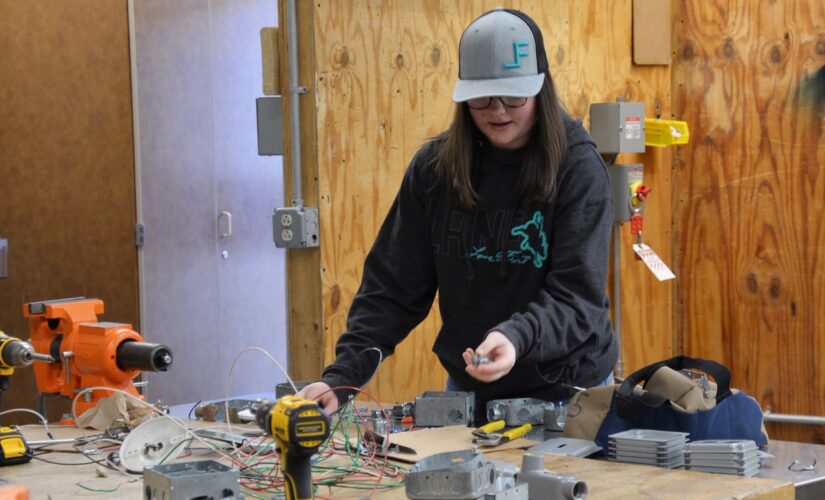Electrical Distribution and Automation/Electrician
(46 .0399)
Program Description
EDA_Essential skills chart_2022
This is an instructional program that prepares individuals to apply technical knowledge and skills necessary to install, operate, maintain and repair electrically energized residential, commercial and industrial systems, DC and AC motors, controls and electrical distribution panels. Instruction emphasizes practical application of mathematics, science, circuit diagrams and use of electrical codes and includes blueprint reading, sketching and other subjects essential for employment in the electrical occupations. Reading and interpretation of commercial and residential construction wiring codes and specifications, installation and maintenance of wiring, service and distribution networks within large construction complexes are also critical components of the program. Electricians bring electricity into homes, businesses, and factories. They install and maintain the wiring, fuses, and other components through which electricity flows. Electricians usually start their work by reading technical diagrams that show the locations of circuits, outlets, load centers, panel boards, and other equipment. To ensure public safety, electricians follow the National Electrical Code, and state and local building codes. Electricians generally focus on either construction or maintenance, although many do both. Electricians specializing in construction primarily install wiring systems into factories, businesses, and new homes. Electricians who specialize in maintenance, usually repair and upgrade existing electrical systems and equipment. Specialized electricians may assist in the installation and repair of solar photovoltaic or thermal systems, security or fire alarm system wiring and equipment, heavy duty power transmission lines, or railroad communication systems. Electricians may work indoors or outdoors, at construction sites, in homes, and in businesses or factories. Work may be strenuous at times and may include bending conduit, lifting heavy objects, and standing, stooping, and kneeling for long periods. Electricians risk injury from electrical shock, falls, and cuts. They must follow strict safety procedures to avoid injuries. When working outdoors, they may be subject to inclement weather conditions. Some electricians may have to travel long distances to jobsites. Most electricians work a standard 40 hour week, although overtime may be required. Most electricians learn their trade through apprenticeship programs. Because of the comprehensive training received, those who complete apprenticeship programs qualify for both maintenance and construction work. Apprenticeship programs may last four years. In the classroom, apprentices learn electrical theory, blueprint reading, mathematics, electrical code requirements, and safety and first aid practices. They also may receive specialized training in soldering, communications, fire alarm systems, and cranes and elevators. A number of public and private vocational technical schools and training academies offer training to become an electrician. Employers often hire students who complete these programs and usually start them at a more advanced level than those without this training. A few people become electricians by first working as helpers, assisting electricians by setting up job sites, gathering materials, and doing other nonelectrical work, before entering an apprenticeship program. Electricians may also need classes in mathematics because they solve mathematical problems on the job. Most States and localities require electricians to be licensed. Although licensing requirements vary from State to State, electricians usually must pass an examination that tests their knowledge of electrical theory, the National Electrical Code, and state and local electric and building codes. Experienced electricians periodically take courses offered by their employer or union to learn about changes in the National Electrical Code.
Employment Opportunities:
• Electricians
• Electrical Assemblers
• Electrical Sales
• Electric/Mechanical Technician
• Electrical & Instrumentation Technician
• Telecommunications Installer
